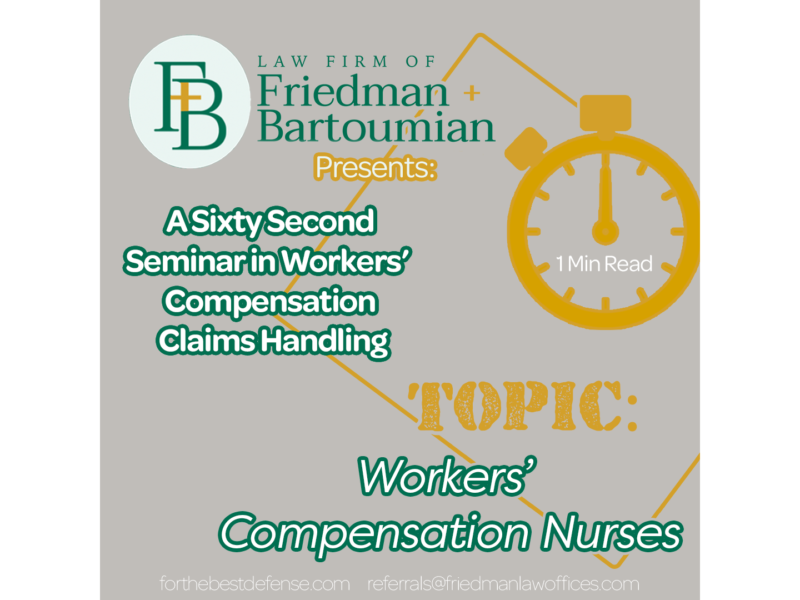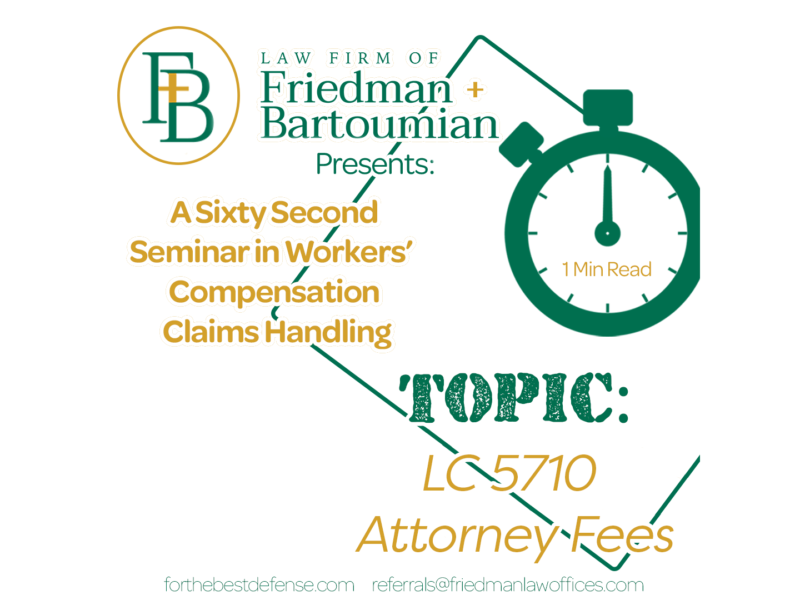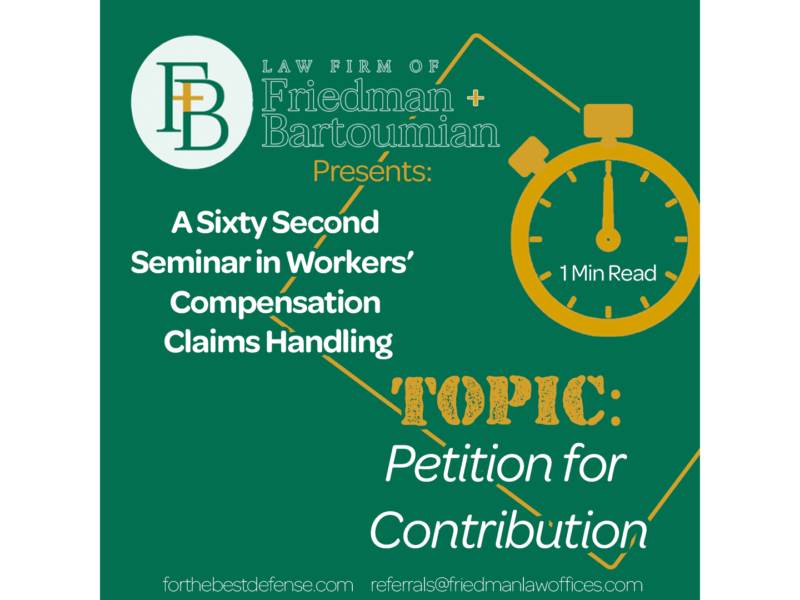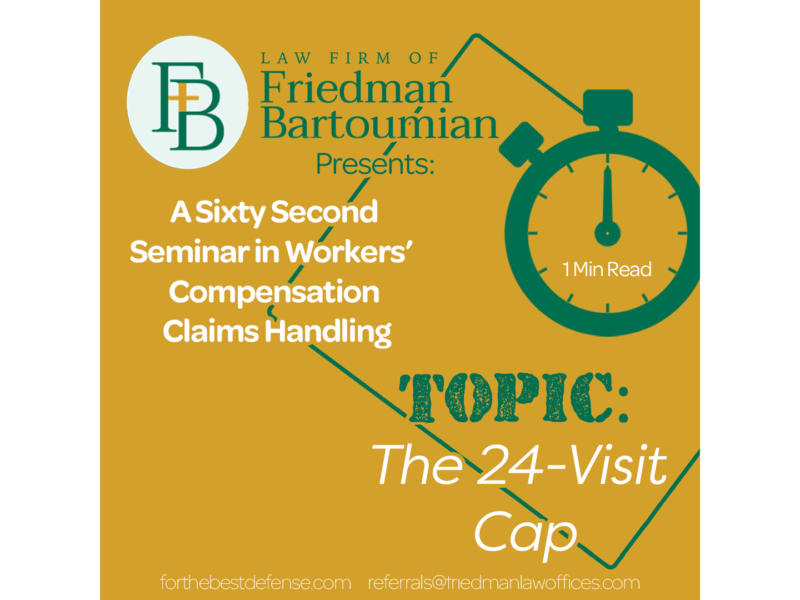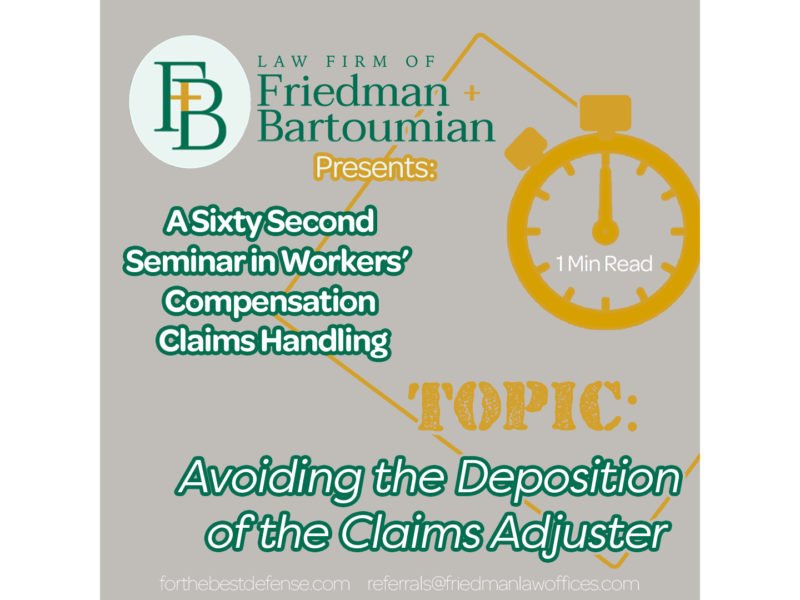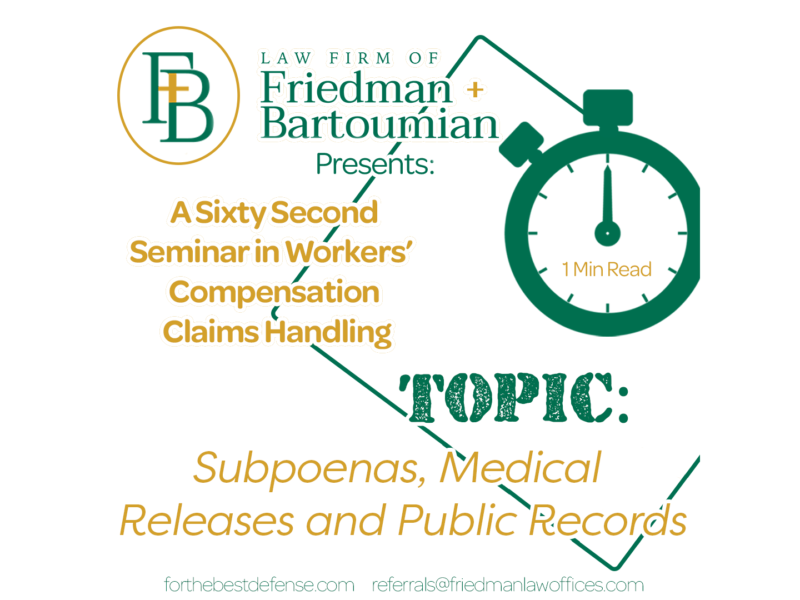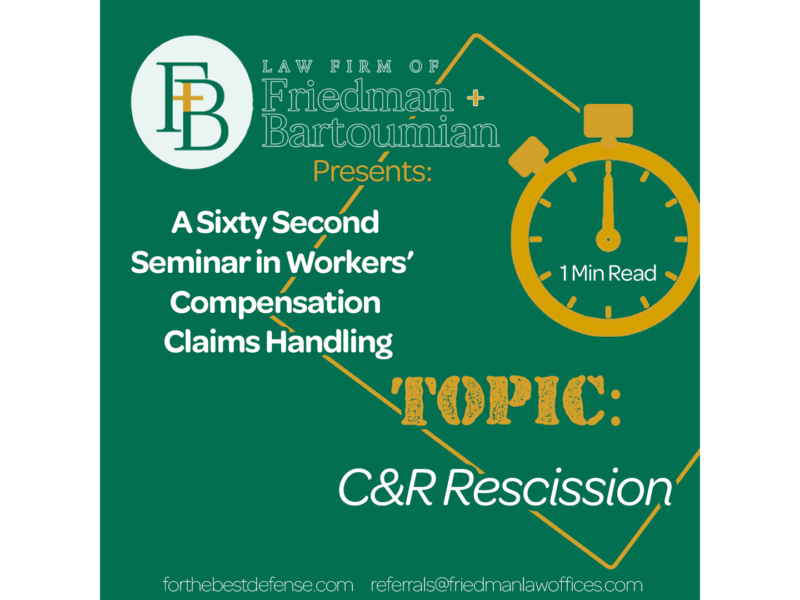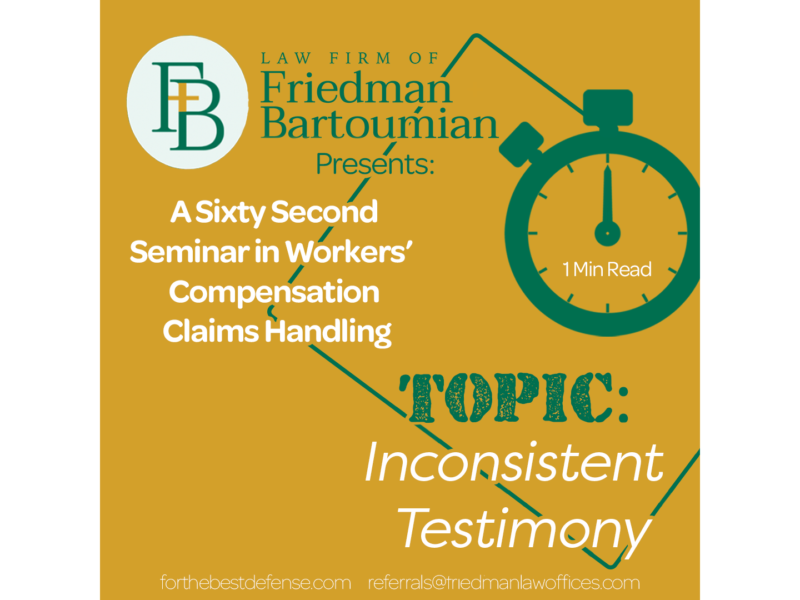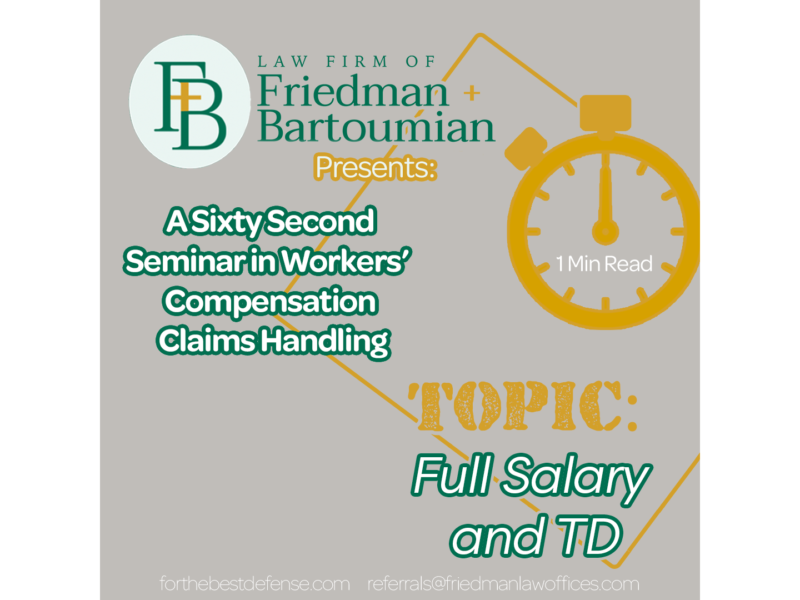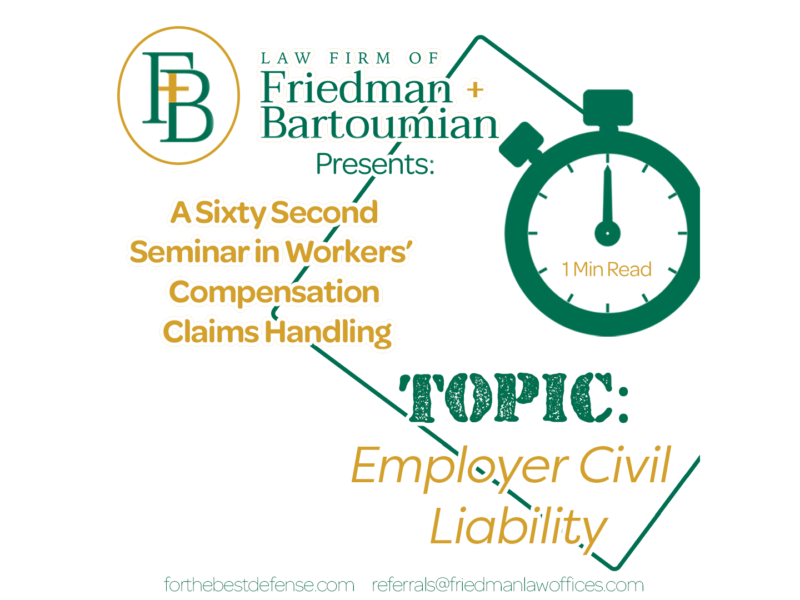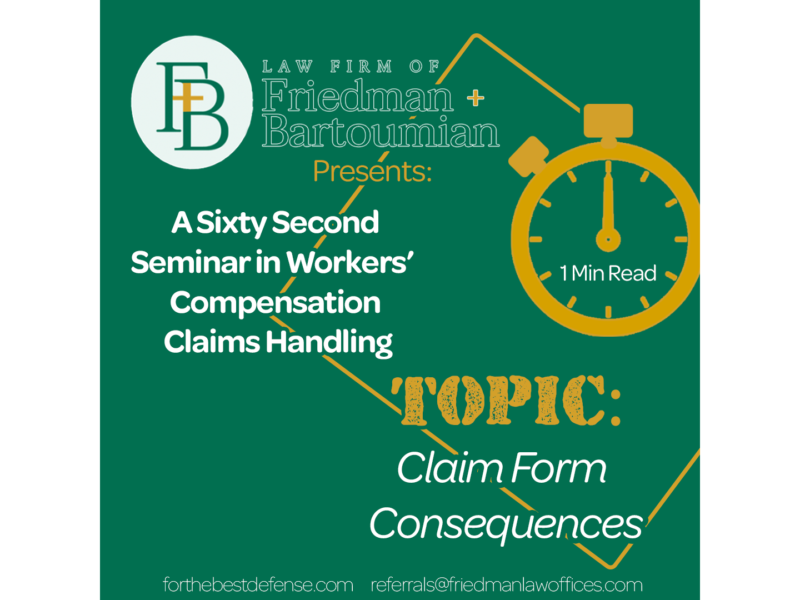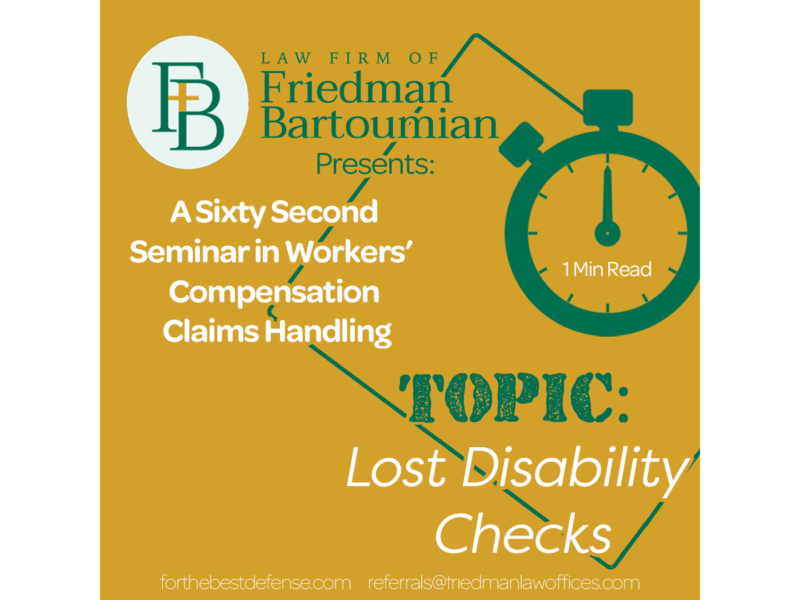In today’s world of workers’ compensation, it is a most welcome and common occurrence for nurses to be engaged to assist and participate in the adjustment of industrial claims; however, most claims professionals are unaware there are six (6) different types of nurses available in workers’ compensation, each of which has a different but vital …
LC 5710 Attorney Fees: A Sixty-Second Seminar in Workers’ Compensation Claims Handling
Pursuant to Labor Code Section 5710, an applicant attorney is allowed to charge an hourly fee when representing an applicant at their deposition in a workers’ compensation case. Unfortunately, we do not have a fee schedule which provides guidance as to how much to an applicant attorney is to be paid for deposition services. In …
LC 5710 Attorney Fees: A Sixty-Second Seminar in Workers’ Compensation Claims HandlingRead More
Petition for Contribution: A Sixty-Second Seminar in Workers’ Compensation Claims Handling
When multiple employers or insurance companies share liability for an industrial injury, the injured worker is allowed to choose which of those defendants they want to administer the benefits they are entitled to receive. The elected entity then handles the entire claim subject to their right to seek contribution from the other defendants. Having written …
Petition for Contribution: A Sixty-Second Seminar in Workers’ Compensation Claims HandlingRead More
The 24-Visit Cap: A Sixty-Second Seminar in Workers’ Compensation Claims Handling
For injuries occurring on or after January 1, 2004, Labor Code Section 4604.5(c)(1) limits an applicant to twenty-four (24) chiropractic, physical therapy, and occupational therapy treatments. There are; however, three exceptions that allow for additional visits, defined as follows: a. When the injury occurs prior to 1/1/2004,b. When an exception is authorized in writing by …
The 24-Visit Cap: A Sixty-Second Seminar in Workers’ Compensation Claims HandlingRead More
Avoiding the Deposition of the Claims Adjuster: A Sixty-Second Seminar in Workers’ Compensation Claims Handling
When a dispute arises between an Applicant’s Attorney (AA) and a claims adjuster (even if trivial in the grand scheme of things), AA may issue a notice of deposition to the adjuster. While we would like to believe that such notices are not issued out of spite or harassment we can only speculate. One thing …
Subpoenas, Medical Releases and Public Records: A Sixty-Second Seminar in Workers’ Compensation Claims Handling
Do you know when to use a subpoena versus a medical release or public record? Once again, our blog will discuss yet another topic where education is not readily available. Today we will quickly go over the major differences in obtaining records through subpoenas, medical releases, and public records. As a procedural tip be certain …
C&R Rescission: A Sixty-Second Seminar in Workers’ Compensation Claims Handling
Our blog today concerns a developing trend at the appeals board where settlement agreements designed to forever close claims are now being set aside, resulting in the files being reopened with litigation resuming. This trend is growing at such a rate that employers now need to employ additional protections to preserve their C&R settlements. For …
C&R Rescission: A Sixty-Second Seminar in Workers’ Compensation Claims HandlingRead More
Inconsistent Testimony: A Sixty-Second Seminar in Workers’ Compensation Claims Handling
It is quite common for an employee to file a claim for Unemployment Insurance benefits (UI) after an employee is laid off; however, to receive up to 26 weeks of UI benefits the ex-employee must certify under the penalty of perjury they were available for and capable of working every day. During the 26 weeks …
Inconsistent Testimony: A Sixty-Second Seminar in Workers’ Compensation Claims HandlingRead More
Full Salary and TD: A Sixty-Second Seminar in Workers’ Compensation Claims Handling
Today’s blog asks a simple question: when should an injured worker opt for temporary disability benefits under California’s workers’ compensation act in lieu of salary replacement? The worker’s answer will likely depend on their personal financial situation and the variety of factors we list below. It may surprise you to learn that in some instances …
Full Salary and TD: A Sixty-Second Seminar in Workers’ Compensation Claims HandlingRead More
Employer Civil Liability: A Sixty-Second Seminar in Workers’ Compensation Claims Handling
In California, an injured worker’s exclusive remedy against an employer for injuries arising out of an industrial accident is subject to the provisions of the Workers’ Compensation Act, found within our state constitution at Article XIV, Section 4, which provides that any dispute between the worker and their employer over the worker’s entitlement to benefits …
Employer Civil Liability: A Sixty-Second Seminar in Workers’ Compensation Claims HandlingRead More
Claim Form Consequences: A Sixty-Second Seminar in Workers’ Compensation Claims Handling
After incurring an industrial accident most employers are usually very busy investigating the incident and reporting the injury to their workers’ compensation insurer or administrator. Employers also interview witnesses, obtain statements, fill out internal accident reports, present a DWC-1 Claim Form to the injured worker and arrange for medical care. All the foregoing are necessary …
Claim Form Consequences: A Sixty-Second Seminar in Workers’ Compensation Claims HandlingRead More
Lost Disability Checks: A Sixty-Second Seminar in Workers’ Compensation Claims Handling
A mystery waiting to be unraveled sometimes arises when an injured worker reports a disability check as missing, and the check in question is identified as having been cashed or otherwise negotiated. The stakes are raised when a large settlement check turns up missing but cashed. We dedicate today’s blog to this scenario, since it …
Lost Disability Checks: A Sixty-Second Seminar in Workers’ Compensation Claims HandlingRead More

